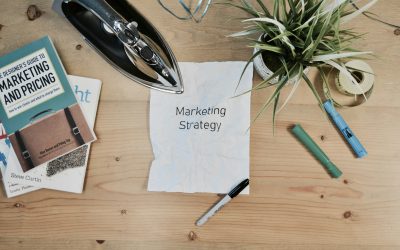Digital marketers use two main methods for generating traffic and building an audience: paid media and
SEO. These are fairly broad categories that encompass a broad range of techniques and tools.
SEO – or search engine optimisation – refers to using various techniques to get a website or webpage
listed higher up on a search engine’s results for specific searches or search intents.
Paid Media is when companies pay to have their advertising or promotional content placed on external
channels – like branded content, display advertisements, or pay-per-click advertisements.
Sometimes they can merge into each other. For example, paid media often incorporates keywords and
other SEO practices. SEO can be based on insights gathered from paid advertisements or used in tandem
with paid media tactics.
The core difference between SEO and paid media is that SEO doesn’t include paying search engines for
promotion. On the other hand, paid media pays to get content placed directly in front of a specific
audience.
SEO for businesses
Search engine optimisation helps websites get found by people who are searching for and interested in
their content.
SEO techniques are used to structure a website and its content in a way that’s easily understandable to
both search engines and people using various devices.
SEO affects everything that goes into making a webpage. It includes technical website construction,
information architecture, keyword research, SEO copywriting, content structuring, and link building.
Why businesses use and love SEO
SEO is the go-to strategy for generating organic traffic. That means getting users to land on a website
from unpaid search listings.
SEO is essential for any business that interacts with its customer base online. Here’s why they love it:
- Cost-Effective. SEO is one of the cheapest ways to generate traffic. It can be done by anyone who has a live website and some time on their hands. Most businesses use paid tools for their SEO but it’s still far less expensive than running paid advertisements.
- Higher Search Result Ranking. The first search result on Google gets around 28.5% of the clicks. The second gets around 15% and the third gets around 11%. It only gets worse after that. The tenth spot only gets around 2.5% of clicks and most users never move past the first page. Making it onto the first page of a search engine’s results is a big deal. And the higher, the better. Strategic SEO is what gets a website into the first, second, or third position. This is an ongoing fight. Businesses are always fighting to get to the top. And businesses that do rank are always trying to stay on top.
- Quality Organic Traffic. Traffic alone isn’t what businesses want. There’s no point in having a flood of users who have no interest in what’s being sold. Plus, Google will penalize websites with a high user bounce rate. SEO is what connects websites with their intended audiences. When done well, it generates a continual stream of fresh, interested users.
- Trust and Credibility. Advertising always creates some level of scepticism. This isn’t present when users find a highly ranked website and click through to it.
- User Experience. Search engines want to make sure they send users to websites they will enjoy. That’s why on-page SEO considers how readable it is. These users stay on the page longer, get more interested, and are more likely to return.
- Long-Term Results. SEO doesn’t work instantly, but it provides longer-lasting results than paid advertising campaigns.
Many marketing professionals, consultants, and agencies specialise purely in SEO.


Paid media for businesses
Paid media is used to buy advertising space or promotions on other websites, platforms, or channels. This can be on search engines, social media sites, podcasts, websites, other digital media platforms, or physical spaces.
It includes:
- Sponsored content
- Banner ads
- Display ads
- Native ads
- Video ads
- Search engine ads
- Social media ads
- Digital billboards, kiosks, and signs
- Billboards
- Posters
- And more
A lot of money goes into these campaigns. Businesses don’t use paid media haphazardly – at least not if they want to achieve their objectives and see a healthy return on the funds they put into it.
Paid media takes careful planning and skilful work. You need a good understanding of the modern advertising environment, the platform, the business, and the audience. But it’s one of the most effective ways to generate traffic, promote a brand, and get sales.
Why businesses use and love paid media
- Targeted, Precise, and Strategic. Paid media places content right in front of its intended audience. Marketers can select who will see it by demographics, behavioural data, interests, intent, and other criteria. Search engines, apps, and social media platforms are gathering vast amounts of user intelligence. Paid media lets companies take advantage of this.
- Instant Feedback and Measurable Results. Unlike SEO, paid media advertising run on Google, Facebook, or another platform always gives instant feedback and results. This allows marketers to instantly refine and adjust their campaigns. It’s a great way to generate immediate results and discover more about your target audience.
- Increased Reach and Exposure. Businesses that purchase advertisements on other media platforms get to reach far more people than through on-page SEO alone. It’s a way to borrow the success, popularity, and reach of another website or platform.
- Campaign Friendly. Paid media allows marketers to run structured marketing campaigns within set timeframes and budgets. SEO is good for building ongoing traffic but isn’t great for seasonal or periodic campaigns. That’s the job of paid media.
Upskill into a thriving professional career with SEO and paid media advertising skills
Search engine optimisation and paid media advertising are highly valued skills in today’s world. Almost every business with an online presence relies on these activities to get seen by their target audiences, attract customers, and make sales.
These companies are ready and willing to invest in the people who have learned how to get the results they want. That person can be you.
You can become an in-demand SEO or paid media professional by upskilling yourself with a comprehensive digital marketing program.
Learn more about Digital Academy’s SEO and paid media courses today.




